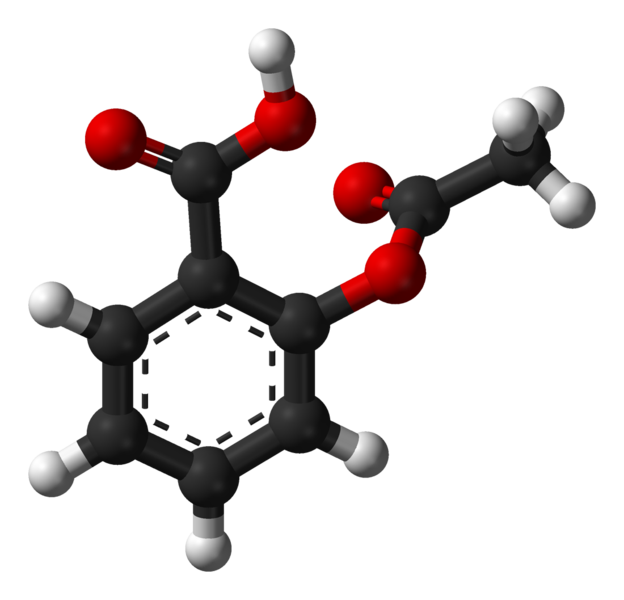My favorite organic molecule is aspirin, which is also known as
acetylsalicylic acid. It is one of the first pain relievers in tablet form. I chose aspirin because it is an over the counter medicine that is not only used as a pain reliever and a fever reducer but also as an inhibitor of blood clot formation. By inhibiting the production of thromboxane, aspirin has an anti-platelet effect. Under normal circumstances the antiplatelet effect binds platelet molecules together in order to create a patch of sorts on top of damaged walls of blood vessels. The platelet patch blocks blood flow downstream and locally. Which is why aspirin is used long term to help prevent strokes, blood clot formations, and heart attacks. If given immediately after a heart attack, aspirin can reduce the risk of another heart attack and/or the death of cardiac tissue. Aspirin may also be able to help prevent certain types of cancer. Aspirin is a multipurpose over the counter medicine which can be use for many reasons.
Aspirin was first synthesized by a German chemist by the name of Felix Hoffman in 1897. Hoffman knew that the basic ingredient is salicin. Salicin was used in the fifth century B.C. by Hippocrates to relieve pain and it is found in willow bark. After its eaten salicin is converted to salicylic acid by the body. In the U.S. alone, about 40 million pounds of aspirin are sold each year.


Sources:
http://www.reciprocalnet.org/recipnet/showsamplebasic.jsp?sampleId=27344263
http://en.wikipedia.org/wiki/Aspirin


I use aspirin quite often and was unaware of the effects of the antiplatelet which block blood flow. There are several ill sideeffects related to this drug. For instance, taking aspirin everyday or often may decrease the ability to prevent attack/stroke. By aspirin interfering with your blood clotting action, it can prevent profusive bleeding but at the same time; if your blood vessels are already narrowed, it can cause a buildup of fatty deposits in your arteries.
ReplyDelete